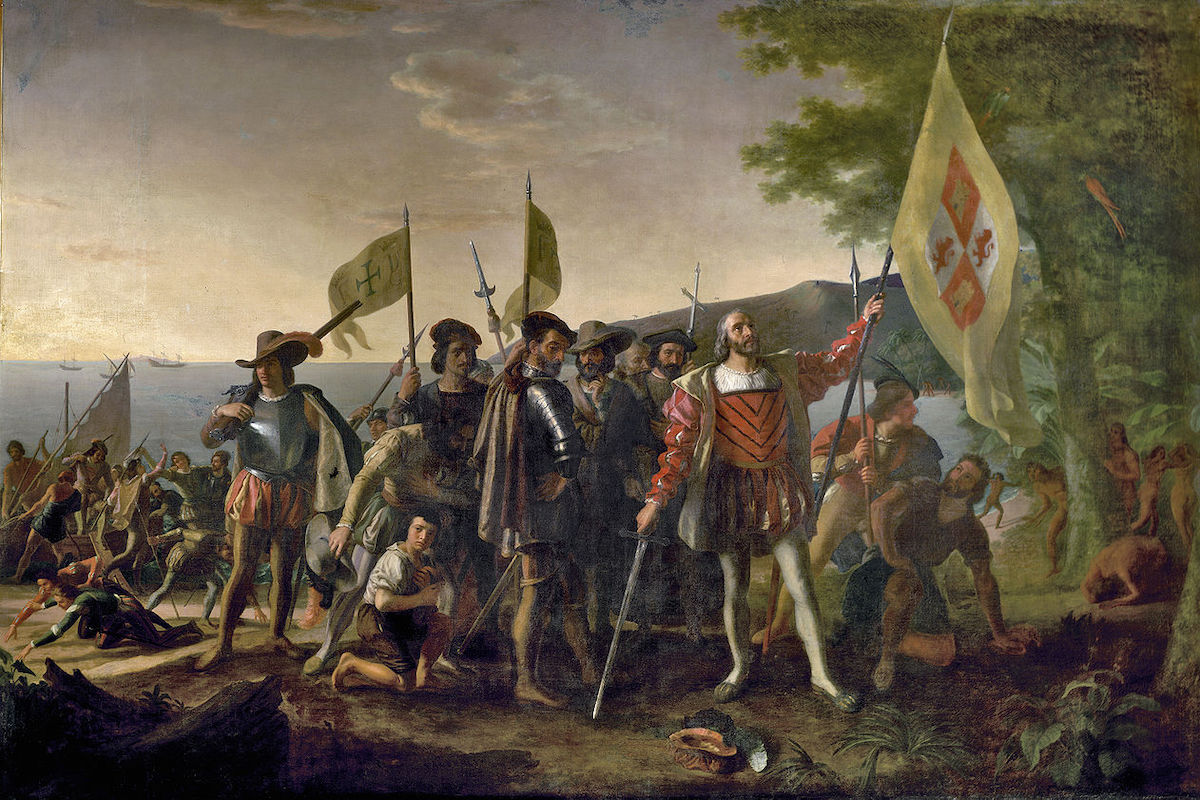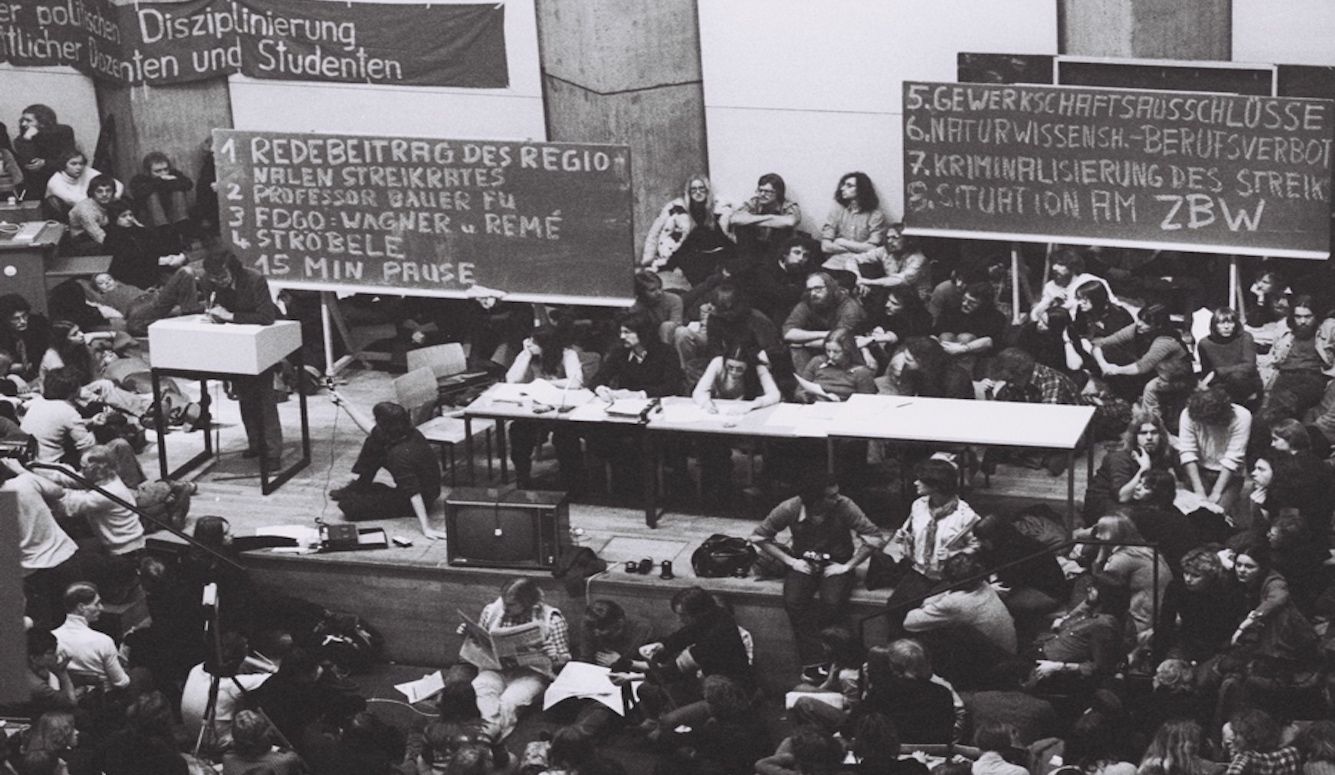History
'Oikophobia': Our Western Self-Hatred
The simplest way of defining oikophobia is as the opposite extreme of xenophobia.

It was an Italian evening in late summer at the end of the previous decade, and I was having dinner outside in the shade of the Roman Colosseum—the emblem of a decadent Empire whose ruins were everywhere to be seen. One of my fellow diners, a young graduate student of Ancient History, suddenly made the disquieting observation that she could never speak ill of another culture. Not only was she unable to do so, but in fact she emphasized that she did not even have the right to do so. When I asked her, alluding to her own Austrian roots, what she might say of a culture that produced, say, Adolf Hitler, she replied that she as an Austrian European may criticize European and Austrian culture, and consequently that brutal dictator.
My follow-up question, whether then by her logic a non-Austrian or non-European should not be allowed to criticize Nazism, did not receive a clear reply. But my fellow diner continued to insist that we should only criticize our own cultures, never others. I thus had one of my frequent meetings with the intellectually bankrupt posture of oikophobia, the hatred or dislike of one’s own cultural home. Significantly, my interlocutor was a part, or at least a future part, of our social elite: a Ph.D. in the making, generally quick-witted, and with a mastery of several languages, both modern and ancient. I looked up at the Colosseum, whose dark and gaping ruin reminds us that all things will perish: our own civilization is heading your way.
This exchange was similar to many that I have had in countries all around the Western world. They reveal a civilization that has stopped believing in itself, that hates itself, and that is therefore unwilling to defend the values of individual freedom, democracy, and scientific and scholarly skepticism that have been handed down to us since antiquity. We are all familiar with this phenomenon, and every single day brings news stories in which oikophobia is involved. To mention just a couple among literally thousands of clearly oikophobic incidents of recent times: this past July the San Francisco School Board voted to remove a mural of George Washington from one of its public schools because of its purported racism; the group leader of American volunteer teachers in Africa some years ago informed the volunteers that residing in a foreign culture had taught her that the United States deserved the 9/11 terrorist attacks because of U.S. foreign policy (I know this because I was one of the volunteers). Actions and statements of this kind have become perfectly commonplace by now, and we all know about them, but most people cannot explain why things are this way. How can it have come to such cultural self-hatred? The answer lies in an oft-repeated historical process that takes a society from naïve and self-promoting beginnings to self-contempt and decline.
The simplest way of defining oikophobia is as the opposite extreme of xenophobia. As xenophobia means the fear or hatred of strangers or foreigners, so oikophobia means the fear or hatred of home or one’s own society or civilization, oikos being the ancient Greek word for home, house, household. The term was coined in this sense by British philosopher Roger Scruton in 2004, in his book England and the Need for Nations. He calls oikophobia “the felt need to denigrate the customs, culture and institutions that are identifiably ‘ours.’” As the title of his book suggests, Scruton is mainly concerned with England, and so within this framework he places the rise of oikophobia after World War II. There is much truth to this, but it is also true, to go beyond Scruton, that the oikophobe occurs and recurs throughout history. The oikophobia that developed after World War II is therefore only the latest manifestation of the phenomenon, and nothing truly new. The reason why we are experiencing oikophobia in the United States today is that we are in about the same phase of historical development now as England was after World War II, or a little earlier: a great power, but on the decline.
So oikophobia is a natural outgrowth of the way cultures, and certainly Western cultures, develop. It occurred in ancient Greece, in Rome, in the French and British empires, and now in the United States. To give a very brief overview of this development, we may say that in the beginning, a people relatively uncivilized and uncultured, but possessed of great mobility and untested strength, awakens and, as it were, goes to war in service of its deities. Initial successes against surrounding peoples lead to greater wealth and prestige, and a national identity is forged, accompanied by literary epics and other accoutrements of culture. Eventually, the people reaches its pinnacle of success, with so much wealth that a broad and permanent leisure class can be established, and this era of greatest political power will generally coincide, more or less, with the pinnacle of the nation’s cultural and scientific achievements. There is finally enough wealth and power for the leisure class, and in many cases for people lower on the social ladder as well, to become more occupied with achieving higher states of wealth and prestige vis-à-vis their countrymen than they are with the health of the community itself.
This is where oikophobia sets in. Diverse interests are created that view each other as greater enemies than they do foreign threats. Since the common civilizational enemy has been successfully repulsed, it can no longer serve as an effective target for and outlet of people’s sense of superiority, and human psychology generally requires an adversary for the purpose of self-identification, and so a new adversary is crafted: other people in the same civilization. Since this condition of leisure and empowerment, as well as a perception of external threats as non-existential, are the results of a society’s success, success is, ironically, a prerequisite for a society’s self-hatred. What Freud has called the “narcissism of small differences” (in Civilization and Its Discontents)—the urge to compete against others even through minor distinctions like a virtuous action or the newest gadget—becomes one motivation through which a particular interest expresses its superiority over others.

This “domestic” competition means that by rejecting one’s culture as backward, one automatically sets oneself above all the other interests that are parts of that culture. Earlier in the civilizational development, the cooperation of a larger proportion of the people is essential for survival at a time when the state is poorer and individuals more reliant on one another for basic security. But once the society has taken off and become affluent, there is greater opportunity to excel and more room, therefore, for people to start criticizing their own culture in an effort to get ahead personally. People are always self-interested, of course, but the gulf between immediate self-interest and the interest of the state is smaller when the state itself is smaller and weaker.
As has been the case in other civilizations, insofar as the political terms of “left” and “right” may have been applicable to them (“progressive” and “conservative” are often more appropriate for ancient civilizations), the oikophobes dominate in left-wing areas, while non-oikophobes and, in some cases, xenophobes and anti-oikophobic reactionaries dominate in right-wing areas. The increased hostility between these two sides in the United States comes at the expected time, since the country has already slipped from its peak and is slowly descending on the other side. The historical development of oikophobia has had a debilitating effect on many aspects of our society, on its culture, politics, and military. It is a nation so fixated by internal squabbles that it is no longer capable of effectively projecting outward, unified force.
That this would happen was predicted hundreds of years ago through the trajectories of previous civilizations—in fact, it was predicted thousands of years ago, before Europeans even knew of the American hemisphere. In Book 8 of his Republic, Plato explains that the more freedom and equality is to be found in a society, the more its members will hold themselves above the state. We do not need to agree with Plato’s grumpy old fascism and proto-communism to understand, nonetheless, the wisdom of his description of societies’ decline. Conservatism and progressivism are both needed, but in different doses at different times. A more progressive outlook is important for an early society that needs to adopt new ideas and absorb the strength of outsiders in an effort to get ahead, while a more conservative outlook is needed in late society in order for it not to lose its grounding and its ability to stand up for itself. The perennial doom of Western societies is that early on, many people tend to be more conservative, and later on, many people tend to be more progressive, the exact opposite of what is needed.
It is a shame that we are in the grip of oikophobia, and it is indicative of how we have let other cultures crowd out our own; it’s a pity because it should be possible to express interest in and to learn from other traditions while at the same time remaining appreciative of one’s own heritage. But many people are incapable of handling that balance, and the more oikophobic we become and the more we embrace the idea of cultural diversity, the farther we are removed from the sources and thereby the understanding of our own culture. Since we do not understand this culture, one often hears oikophobic Westerners refer with disdain to “Western values” or to those who say they treasure “Western values”—but in fact those disdainful people themselves adore Western values; they just don’t know it. That is to say, they do not know that they are Western.
It is because pride in our civilization is entirely justified—which does not negate an awareness of its shortcomings and of past crimes—that we must understand the phenomenon of oikophobia, since by understanding it we can finally hope to combat it. Once we realize that oikophobia is a sort of pathology that develops under distinct socio-historical circumstances and does not involve any particularly interesting independent thought, but rather is more of a knee-jerk reaction, we are better equipped to face it in our everyday lives.






